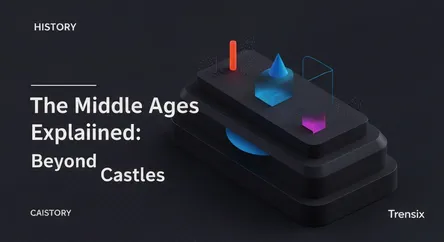History
The Middle Ages Explained: Beyond Castles

An overview of the Middle Ages, the period in European history from the 5th to the 15th century, known for knights, castles, and profound change.
What is it?
The Middle Ages, or medieval period, is a thousand-year era of European history between the fall of the Western Roman Empire in the 5th century and the start of the Renaissance in the 15th century. This period is often subdivided into the Early, High, and Late Middle Ages. It was characterized by the feudal system, a social structure where kings granted land to nobles in exchange for military service, while peasants (serfs) worked the land for protection. The Christian church, particularly the Papacy, was the dominant spiritual and political authority. Major events include the Crusades, the Black Death pandemic, and the construction of magnificent Gothic cathedrals.
Why is it trending?
The medieval period is experiencing a pop culture renaissance. It provides a rich backdrop for fantasy and escapism, seen in hugely popular TV shows like "House of the Dragon" and video games such as "Baldur's Gate 3" and "Elden Ring". This "medieval revival" also influences fashion, with aesthetics like "knightcore" and "castlecore" appearing on runways and social media, featuring elements like chainmail and corsets. This trend allows for a reinvention of history, blending historical aesthetics with modern storytelling and offering an escape from the complexities of contemporary life.
How does it affect people?
The Middle Ages laid the groundwork for the modern world in many ways. The foundations of modern nation-states and legal systems, such as common law, were established during this period. The era saw the birth of the first universities in cities like Bologna and Paris, creating a model for higher education that persists today. Many technological innovations, from the heavy plow that boosted agriculture to inventions like mechanical clocks and eyeglasses, have medieval roots. Its art, architecture, and literature continue to influence our culture and understanding of history.